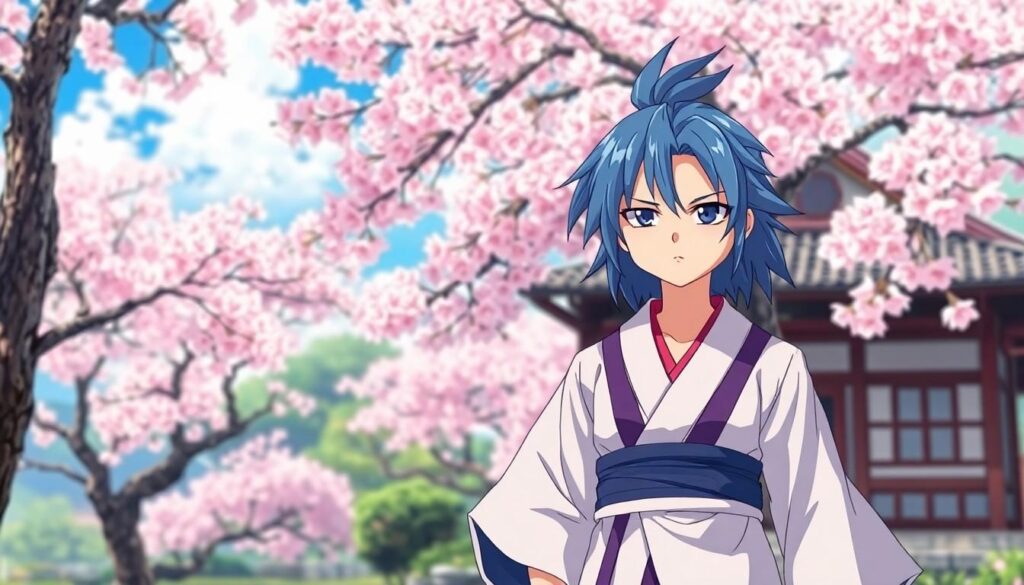Ever wondered about those distinctive Japanese surnames you hear in your favorite anime series? From powerful clan names to surnames that reveal a character’s destiny, anime last names are more than just identifiers—they’re storytelling tools packed with cultural significance and hidden meanings.
We’ve compiled the ultimate guide to anime last names that’ll transform how you experience your favorite shows. Whether you’re creating an original character, looking for the perfect username, or simply curious about Japanese naming conventions in anime, you’ll find everything you need right here. Discover how these carefully chosen surnames enhance worldbuilding and character development in ways you might have missed.
10 Most Common Anime Last Names and Their Meanings
Japanese surnames frequently appear across various anime series, creating a sense of authenticity and cultural depth. We’ve compiled the most common anime last names that you’ll encounter during your viewing experience, along with their meaningful translations that offer insight into character backgrounds.
- Suzuki (鈴木) – One of Japan’s most prevalent surnames, Suzuki means “bell tree” or “bell wood.” This name appears in many anime like “Lucky Star” and “Nichijou,” representing ordinary, relatable characters.
- Sato (佐藤) – Meaning “help wisteria,” Sato ranks as Japan’s most common surname. Anime creators often give this name to background characters or those representing everyday Japanese citizens.
- Tanaka (田中) – Translating to “rice field middle,” Tanaka appears in countless anime series including “Haikyuu!!” and “K-On!” Its popularity stems from its typical Japanese quality, making characters feel authentic.
- Watanabe (渡辺) – This surname means “cross border” or “ferry area” and frequently appears in slice-of-life anime. Characters with this name often have connections to travel or transitions.
- Nakamura (中村) – Meaning “middle village,” Nakamura represents characters with strong community ties or middle-class backgrounds in many anime series.
- Yamamoto (山本) – Translating to “mountain origin,” this powerful surname often belongs to characters with strong, steadfast personalities or those with connections to traditional Japanese values.
- Takahashi (高橋) – Meaning “high bridge,” Takahashi frequently appears in school-based anime. Characters with this name often serve as connectors between different social groups or worlds.
- Kobayashi (小林) – This surname means “small forest” and appears in various anime including the popular “Miss Kobayashi’s Dragon Maid.” It typically represents modest, hardworking characters.
- Ito (伊藤) – Meaning “that wisteria,” Ito appears in many anime across different genres. This versatile surname often belongs to characters with mysterious backgrounds or hidden qualities.
- Yoshida (吉田) – Translating to “lucky rice field,” Yoshida represents characters with fortunate circumstances or optimistic personalities in many anime series.
These common surnames serve as more than just identifiers—they provide subtle hints about characters’ social standing, personality traits, and potential story arcs. Many anime creators deliberately choose these familiar names to establish relatable Japanese settings while occasionally using the names’ literal meanings to reinforce character traits.
The Historical Significance of Japanese Family Names in Anime

Japanese family names featured in anime carry deep historical significance that enhances storytelling and character development. The rich history of these surnames dates back to the late 19th century when the Meiji government mandated all Japanese citizens to adopt surnames in 1875. Before this period, only nobility and samurai classes possessed official family names. Many Japanese surnames derive from nature, reflecting the environment and occupations of those who first adopted them. Common examples include “Sato” (to help wisteria), “Takahashi” (tall bridge), and “Tanaka” (central rice paddy).
How Feudal Japan Influenced Modern Anime Surnames
Feudal Japan’s social structure profoundly shaped the development of Japanese surnames we now see in anime. Samurai and nobility classes contributed significantly to surname origins, with these names often carrying prestige and clan associations. The Watanabe clan, for instance, was a prominent ruling and warring clan whose name continues to appear in many anime series. Geographical identification was crucial during feudal times, resulting in location-based surnames like “Akihara” (autumn field) and “Fujikawa” (wisteria river) that populate anime character rosters. Traditional honorifics such as addressing adults by their family name with “-san” reflect feudal etiquette that anime creators faithfully preserve for authenticity. These naming conventions help establish social hierarchies and relationship dynamics between characters, providing viewers with subtle contextual clues about the story industry.
Regional Variations in Anime Last Names
Regional distinctions in Japanese surnames add nuance to anime character development and worldbuilding. Different regions often use varied kanji characters to write the same surname, creating multiple meanings for identical pronunciations. The surname “Yuuki,” for example, can mean either “Joining castles” or “Night Castle” depending on the exact kanji used. Anime creators frequently incorporate local geographical references into character surnames to indicate their origins, with names like “Chiba” (thousand leaves) and “Hamasaki” (beach peninsula) suggesting connections to exact Japanese regions. Cultural significance embedded in regional names such as “Fukuyama” (good fortune mountain) provides additional character depth that attentive viewers can appreciate. These regional variations allow anime studios to create more diverse and realistic character backgrounds while maintaining an authentic Japanese cultural foundation.
7 Powerful Anime Last Names Associated With Legendary Characters

Anime surnames often transcend simple identification, becoming synonymous with extraordinary powers, legendary status, and rich storytelling. These powerful family names instantly evoke exact character traits, abilities, and legacies that have made their mark on anime history.
- Uchiha – This iconic surname from “Naruto” represents exceptional talent in ninjutsu and is associated with ambitious characters like Sasuke and Itachi. The Uchiha clan’s reputation for excellence and their genetic predisposition to the powerful Sharingan eye technique makes this one of anime’s most formidable family names.
- Kurosaki – Featured prominently in “Bleach,” this surname embodies heroic protection and is carried by the protagonist Ichigo Kurosaki. The name has become synonymous with unwavering determination and the willingness to protect others at all costs.
- Elric – In “Fullmetal Alchemist,” this surname represents alchemical prowess and unbreakable brotherly bonds. Edward and Alphonse Elric’s journey has cemented this name as one associated with exceptional talent, sacrifice, and the pursuit of redemption.
- Joestar – This multigenerational surname from “JoJo’s Bizarre Adventure” signifies a lineage of courage and honor. Characters like Jonathan Joestar and Jotaro Kujo have established this name as one that represents fighting against overwhelming odds and standing up for justice.
- Zoldyck – Known from “Hunter x Hunter,” this surname carries the weight of assassination excellence. The Zoldyck family’s reputation as the industry’s most deadly assassins gives this name immediate gravitas in the anime industry.
- Todoroki – Featured in “My Hero Academia,” this name reflects inner conflict and extraordinary potential. Shouto Todoroki’s dual fire and ice Quirks make this surname instantly recognizable as one associated with exceptional power.
- Hyuga – Another powerful “Naruto” clan, this surname embodies vision and the pursuit of perfection. The Byakugan eye technique associated with this family grants them unique fighting abilities and has established them as one of the most prestigious clans.
Last Names That Signify Special Powers or Abilities
Many anime surnames directly connect to the special abilities their bearers possess. The Uchiha name instantly signals the Sharingan, a powerful eye technique that allows users to copy jutsu and perceive movement at heightened levels. Similarly, the Elric surname has become synonymous with alchemy, particularly the rare ability to perform transmutation without a circle that Edward possesses.
The Todoroki name in “My Hero Academia” immediately evokes the dual nature of fire and ice powers, reflecting the character’s internal struggle and extraordinary potential. Members of the Hyuga clan benefit from their innate Byakugan ability, which provides them with 360-degree vision and the capacity to see through solid objects, making their surname instantly recognizable as one associated with visual prowess.
Family Names That Carry Historical Weight in Anime Universes
Certain anime surnames bring with them centuries of fictional history that enrich storytelling. The Uchiha clan’s complex past, including their founding role in Konoha village and subsequent massacre, adds tremendous depth to characters bearing this name. The Senju clan, also from “Naruto,” carries similar historical significance as the rival clan to the Uchiha and founders of the Hidden Leaf Village.
In “Bleach,” the Kuchiki name represents nobility and tradition within the Soul Society, with family members expected to uphold centuries of honor and duty. The Phantomhive surname from “Black Butler” instantly evokes the family’s long-standing role as the Queen’s Guard and their connections to the supernatural underworld. These historically important surnames don’t just identify characters—they immediately establish expectations, conflicts, and storylines based on the weight of family legacy.
How Anime Last Names Reflect Character Traits and Destinies

Anime creators carefully select surnames that carry important meaning, often reflecting a character’s essence or future path. These names serve as powerful storytelling tools that enhance character development and provide subtle hints about their role in the narrative.
Names That Foreshadow Character Development
Anime last names frequently hint at a character’s future development or reveal qualities that will emerge as the story progresses. “Todoroki” perfectly exemplifies this technique, reflecting the inner conflict and growth central to Shouto Todoroki’s journey in My Hero Academia as he navigates his complex family history and masters his dual fire and ice abilities. The surname “Hatake” shrouds characters in mystery and expertise, foreshadowing Kakashi Hatake’s skilled and enigmatic nature throughout the Naruto series. “Kirigaya” embodies adventure in virtual realms, aptly fitting for Kazuto Kirigaya (Kirito) in Sword Art Online, whose destiny lies in conquering digital worlds and virtual reality adventures. These surnames create anticipation for viewers, subtly suggesting the character arcs that will unfold.
Surnames That Contrast With Character Personalities
Creators sometimes assign last names that deliberately contrast with a character’s personality, adding depth and complexity to their portrayal. “Ackerman” symbolizes loyalty and protective duty, yet Levi Ackerman from Attack on Titan displays a cold and sometimes ruthless demeanor that conflicts with these traditional values. “Satou” represents humility and community strength, but characters like Satou Tatsuhiro from Welcome to the N.H.K. struggle with social integration and community connections, highlighting the gap between the surname’s meaning and the character’s reality. “Yagami,” meaning “Night God,” suggests power and mystery, contrasting with Light Yagami’s initial portrayal in Death Note as an ordinary high school student before his transformation into something far more sinister. These intentional contradictions create multidimensional characters whose struggles often involve reconciling their identities with their inherited names.
The Artistic Choice of Single-Name Characters in Anime

While most anime characters have full names, the decision to give a character only a single name represents a deliberate artistic choice that carries important storytelling weight. In Japanese anime, single-name characters often stand out for exact narrative purposes that enhance their characterization and role within the story.
Cultural significance plays a major role in this naming convention, as Japanese traditions place enormous importance on names as reflections of identity. The transformation of Chihiro’s name to simply “Sen” in “Spirited Away” demonstrates how the loss of a full name can symbolize the stripping away of personal identity—a powerful storytelling device that enhances the narrative’s themes.
Single names frequently appear in fantasy or historical anime settings where they better align with traditional or mystical contexts. These characters gain a timeless quality through their simplified naming, setting them apart from more contemporary characters with full names.
Name simplification can also highlight a character’s unique position or extraordinary nature within the story industry. When creators choose to give a character only one name, they’re often signaling to viewers that this individual exists outside normal social structures or conventions.
Artistic freedom allows anime creators to manipulate naming conventions based on their narrative needs and character design. This flexibility enables them to create distinct character identities that resonate with the audience and support the story’s overall vision.
Many single-name characters in anime embody powerful symbolism through their names, with each syllable carefully chosen to reflect their essence or destiny. Their names often contain linguistic clues about their abilities, background, or future development within the storyline.
Narrative context eventually determines whether a character receives a full name or single name, as creators align naming practices with genre expectations, worldbuilding requirements, and character development needs. We find this practice particularly common in fantasy, historical, and supernatural anime genres where traditional naming conventions might differ from modern expectations.
8 Unique Anime Last Names That Are Difficult to Pronounce

Anime often features surnames that can be challenging for non-Japanese speakers to pronounce correctly. These distinctive last names add depth to characters while reflecting the creative worldbuilding inherent in anime. Here are eight unique anime surnames that might twist your tongue:
Akabane
Akabane appears in “Assassination Classroom” and carries connotations of both mischief and allure. Pronounced “ah-kah-bah-neh,” this surname requires careful attention to each syllable to master its rhythm and flow. The name’s meaning perfectly complements characters with complex personalities.
Zeppeli
Featured in the popular “JoJo’s Bizarre Adventure” series, Zeppeli has a distinctly musical quality to it. Fans should pronounce it as “zeh-peh-lee,” emphasizing each syllable evenly. This surname stands out for its Italian influence in a medium dominated by Japanese naming conventions.
Nightray
Nightray appears across various anime and manga titles, evoking imagery of darkness and nobility. The correct pronunciation is “nai-tray,” which seems straightforward but often trips up viewers unfamiliar with fantasy-inspired surnames. Its evocative meaning makes it perfect for mysterious or aristocratic characters.
Baskerville
Borrowed from classic literature but featured in anime like “D.Gray-man,” Baskerville presents a challenge with its multiple consonants. Pronounce it as “bas-ker-vil,” taking care not to rush through the middle syllable. This surname carries gothic undertones that enhance supernatural storylines.
Arlert
From the hit series “Attack on Titan,” Arlert belongs to one of the most intelligent characters in the show. Pronounced “ar-ler-t,” this surname requires attention to the subtle transition between the final consonants. Many viewers incorrectly add extra syllables when saying this seemingly simple name.
Oxenstierna
Rare and distinctly non-Japanese, Oxenstierna adds international flair to anime characters. The correct pronunciation is “ox-en-shtehr-nah,” with particular attention needed for the middle consonant cluster. This surname showcases how anime often incorporates global naming traditions.
Gilgamesh
Though typically used as a first name, this ancient Mesopotamian name appears as a surname for the King of Heroes in certain anime series. Pronounced “gil-gah-mesh,” it references one of the industry’s oldest literary works. The historical weight of this name adds gravitas to characters who bear it.
Hellscythe
Dramatic and supernatural, Hellscythe appears in various anime featuring otherworldly elements. Pronounced as “hel-sky-the,” this compound surname creates pronunciation difficulties with its unusual consonant pairing. The name immediately signals to viewers that a character possesses extraordinary or death-related abilities.
These distinctive surnames demonstrate how anime creators create memorable character identities through challenging yet meaningful names. Their unique pronunciations add authenticity and depth to the rich tapestry of anime storytelling.
How to Create Your Own Authentic Anime Last Name

Creating an authentic anime last name requires understanding the elements that make Japanese surnames meaningful and distinctive. Let’s explore how you can create your own anime-inspired surname that feels genuine and memorable.
Combining Nature Elements With Traditional Japanese Suffixes
Japanese last names frequently derive from natural elements combined with traditional suffixes, creating surnames with deep connections to the environment. Mountains serve as a common inspiration, with names like Yamada (山田) combining “mountain” with “rice field” to create a meaningful surname. Rivers appear in names such as Asakawa (浅川), which joins “shallow” with the suffix “kawa” meaning “river.” Fields contribute to surnames like Akihara (秋原), blending “autumn” with “hara” meaning “field” or “plain.” Trees feature prominently in names such as Sasaki (佐々木), combining “help” with “tree” elements. Stars inspire celestial surnames like Hoshino (星野), meaning “of the stars.”
Traditional Japanese suffixes play a crucial role in creating authentic last names. The suffix “田 (ta)” represents rice fields, appearing in surnames like Yoshida (吉田), which combines “good luck” with “rice field.” Mountain-themed names often incorporate “山 (yama),” as seen in Akiyama (秋山), meaning “autumn mountain.” River-based surnames typically include “川 (kawa),” while field-related names use “原 (hara)” to create distinctive combinations that reflect Japan’s natural industry.
Using Symbolic Meanings to Create a Memorable Surname
Symbolic meanings enhance anime surnames by reflecting character traits, backgrounds, or destinies. Amaterasu, meaning “shining over heaven,” works perfectly for characters with divine qualities or radiant personalities. Uzumaki, translating to “spiral,” symbolizes characters with complex or ever-changing personalities who may face twisting journeys. Yukimura, meaning “snow village,” suggests characters associated with cold environments or serene isolation. Shiroyama, combining “white” and “mountain,” represents purity, clarity, or strong foundations in a character’s nature.
Creating memorable anime surnames requires thoughtful mixing of these elements. Try combining a nature element with a traditional suffix, such as Kazeyama (風山), which merges “wind” with “mountain” for a powerful, evocative name. Use symbolic meanings by crafting names like Akatsuki (暁月), meaning “dawn moon,” to suggest characters connected to new beginnings or lunar influences. Mix different nature components, as in Sakuragawa (桜川), which combines “cherry blossom” with “river” to evoke both beauty and flowing movement. These approaches allow you to create authentic anime surnames that reflect your character’s essence while maintaining consistency with Japanese naming traditions.
Why Some Anime Last Names Have Become Cultural Phenomena

Cultural Significance and Recognition
Anime last names often carry deep roots in Japanese culture and history that extend far beyond simple character identification. Names like “Uchiha” from “Naruto” have become synonymous with ambition and exceptional talent in ninjutsu, creating instant recognition among fans worldwide. These surnames function as storytelling devices that convey a character’s lineage, abilities, and potential story arc within seconds of introduction. Many anime surnames reflect exact character traits or backgrounds that make them particularly memorable to audiences, such as how “Elric” from “Fullmetal Alchemist” signifies alchemical secrets and brotherly bonds.
Popularity and Familiarity
The widespread popularity of certain anime series has catapulted exact last names into mainstream recognition across global fan communities. Surnames like “Kuchiki” from “Bleach,” “Hyuga” from “Naruto,” and “Todoroki” from “My Hero Academia” have become household names among anime enthusiasts. We’ve observed how these names appear repeatedly across different anime series, reinforcing their cultural significance and familiarity. Common surnames such as “Yamamoto,” “Kobayashi,” and “Ishikawa” appear in many shows, creating a sense of continuity within the anime universe that fans readily recognize.
Symbolism and Themes
Powerful symbolic meanings embedded within anime last names enable them to resonate deeply with audiences on multiple levels. Names like “Senju” represent a legacy of strength and unity that adds substantial depth to character development and storylines. “Phantomhive” symbolizes guardians of underworld power and wealth, immediately establishing the character’s position in society. These symbolic elements transform surnames from simple identifiers into integral narrative components that enhance the viewing experience and create stronger emotional connections with audiences.
Influence on Pop Culture
Anime last names have transcended their original medium to influence broader aspects of popular culture and creative expression. Fans frequently incorporate these iconic surnames into cosplay, fan fiction, artwork, and other creative endeavors. Video games, manga adaptations, and even real-life naming practices have been influenced by particularly resonant anime surnames. This cross-media adoption demonstrates how deeply these names have penetrated cultural consciousness, becoming reference points that extend far beyond their original animated contexts.
Historical and Traditional Roots
The authenticity of many anime last names derives from their connection to traditional Japanese surnames with genuine historical significance. Traditional names like “Akiyama,” “Fujiwara,” and “Tachibana” bring centuries of cultural context into fictional narratives, creating richer character backgrounds. This connection to authentic Japanese naming conventions adds credibility to anime worlds while simultaneously introducing international audiences to elements of Japanese culture. The historical weight behind these surnames provides a foundation that makes fictional characters feel more grounded and realistic even though their often fantastical abilities or circumstances.
Famous Anime Family Dynasties and Their Naming Patterns

Geographic and Industry References
Many anime surnames draw inspiration from Japan’s natural industry, creating meaningful connections between characters and their environment. Names like “Yamamoto” translate literally to “the base of the mountain,” instantly conveying strength and stability to viewers familiar with Japanese naming conventions. “Kishi,” meaning “shore,” suggests characters with connections to coastal regions or those who serve as boundaries between different worlds. These geographic references aren’t random choices but deliberate storytelling tools that provide subtle background information about a character’s origins or personality traits.
Clan and Family Legacies
Uchiha: The Uchiha clan from “Naruto” represents one of anime’s most recognized family dynasties, synonymous with exceptional talent and ambition. Their surname immediately signals a character’s connection to this prestigious lineage, complete with inherited abilities and complicated family history. Fans instantly recognize Uchiha family members as potential wielders of the powerful Sharingan eye technique.
Senju: Also from the “Naruto” universe, the Senju clan stands as the historical counterbalance to the Uchiha. Their name embodies strength and unity, reflecting their family’s foundational role in establishing the ninja village system. Characters bearing this surname carry the weight of their ancestors’ legacy of cooperation and community-building.
Hyuga: The Hyuga family in “Naruto” exemplifies how anime surnames can reflect special abilities, with their name connected to their unique Byakugan eye technique. Their surname suggests perfection and vision, perfectly aligning with their role as a noble clan with exceptional visual prowess. Family members like Hinata and Neji demonstrate how these naming patterns extend through generations.
Symbolic and Thematic Names
Kurosaki: In “Bleach,” the Kurosaki name symbolizes heroic protection, perfectly suited to main character Ichigo’s role as a defender against supernatural threats. This surname effectively foreshadows his destiny as a Soul Reaper and protector of both the living and spirit worlds. The name’s meaning reinforces the character’s core motivation throughout the series.
Elric: The Elric brothers from “Fullmetal Alchemist” carry a surname that instantly connects them to the alchemical arts central to the series. Their family name represents both scientific knowledge and the brotherly bond that drives the story’s emotional core. This surname serves as a constant reminder of their shared search and sacrifices.
Ackerman: In “Attack on Titan,” the Ackerman surname signals exceptional combat abilities and a complicated family history tied to protection. Characters like Mikasa and Levi demonstrate extraordinary fighting skills that are later revealed to be genetically linked to their family name. Their surname carries historical significance within the story industry, adding layers to their characterization.
Unique and Memorable Names
Zoldyck: The Zoldyck family in “Hunter x Hunter” bears a distinctive surname that immediately identifies them as elite assassins. Their unusual name helps establish them as separate from normal society, reinforcing their mysterious and dangerous reputation. The distinctiveness of their surname matches their isolated mountain compound and secretive practices.
Joestar: Few anime dynasties span as many generations as the Joestar family from “JoJo’s Bizarre Adventure.” Their surname represents a lineage of heroes facing supernatural threats across different eras. Each new protagonist carries this legendary name, connecting seemingly disparate stories into one extended family saga. The continued use of this surname across multiple series installments has made it one of anime’s most recognizable family names.
These powerful anime family dynasties showcase how surnames function as more than simple identifiers—they’re storytelling tools that establish heritage, foreshadow abilities, and connect characters to broader narrative themes. The careful selection of these family names demonstrates how anime creators use nomenclature to build rich, multi-generational stories that resonate with viewers worldwide.
Choosing the Perfect Anime Last Name for Cosplay and Roleplay
Anime last names are more than just identifiers – they’re powerful storytelling tools that shape characters and worlds. We’ve seen how these surnames convey cultural heritage blend symbolism with meaning and create lasting impressions on audiences worldwide.
Whether you’re creating an original character crafting fanfiction or preparing for cosplay understanding the cultural significance behind anime surnames adds authenticity to your creative expression. The perfect anime last name connects your character to traditions reflects their personality and hints at their destiny.
The rich tapestry of anime surnames demonstrates how Japanese storytelling traditions continue to captivate global audiences. By appreciating these naming conventions we gain deeper insights into the characters we love and the cultural contexts that shaped them.
Frequently Asked Questions
What is the significance of Japanese surnames in anime?
Japanese surnames in anime serve as powerful storytelling tools that convey cultural meaning and character destinies. They provide insights into characters’ social standing, personality traits, and potential story arcs while enhancing worldbuilding. These names add authenticity to the narrative and help establish relatable Japanese settings, giving viewers a deeper understanding of the characters and their backgrounds.
What are some common anime last names and their meanings?
Some common anime last names include Suzuki (bell tree), often used for relatable characters; Sato (help wisteria), frequently assigned to background characters; Tanaka (rice field middle), reflecting typical Japanese qualities; and Watanabe (cross border), suggesting connections to travel. These surnames not only identify characters but provide cultural context that enriches the storytelling.
How did Japanese family names in anime originate?
Japanese family names in anime trace back to the late 19th century when the Meiji government mandated surname adoption. Before this period, only nobility and samurai typically had surnames. Feudal Japan’s social structure heavily influenced modern surnames, with many names carrying prestige and clan associations. This historical context adds depth to anime character development.
What are some powerful anime last names associated with legendary characters?
Notable powerful surnames include Uchiha (from “Naruto”), signifying exceptional ninjutsu talent; Kurosaki (from “Bleach”), representing heroic protection; Elric (from “Fullmetal Alchemist”), embodying alchemical prowess; and Joestar (from “JoJo’s Bizarre Adventure”), symbolizing courage and honor. These names often connect to special abilities or historical weight within their respective anime universes.
How do surnames foreshadow character development in anime?
Anime creators carefully select surnames to reflect a character’s essence or future path. Names often hint at a character’s destiny or inner conflict, as seen with “Todoroki” (freezing burn) reflecting Shouto Todoroki’s dual fire and ice powers in “My Hero Academia.” Sometimes surnames intentionally contrast with character personalities, creating complexity and multi-dimensional characters.
Why do some anime characters have only one name?
Single-name characters often symbolize a loss of personal identity or highlight a character’s extraordinary nature. This naming convention carries significant storytelling weight, particularly in fantasy or historical settings. The choice between full names and single names depends on narrative context, genre expectations, and character development needs, allowing creators to craft distinct identities.
What makes certain anime last names difficult to pronounce?
Unique anime surnames like Akabane, Zeppeli, and Nightray present pronunciation challenges for non-Japanese speakers due to unfamiliar phonetic combinations. These distinctive names add depth to characters while reflecting creative worldbuilding. Each carries specific connotations and meanings that contribute to the overall richness of anime storytelling and character identity.
How can I create authentic anime-inspired last names?
Create authentic anime last names by combining nature elements with traditional Japanese suffixes, such as “Yamada” (mountain rice field) or “Asakawa” (shallow river). Incorporate symbolic meanings that reflect character traits, like “Amaterasu” (shining over heaven) or “Yukimura” (snow village). Understanding Japanese naming traditions helps craft surnames that resonate with character essence while maintaining cultural authenticity.
Why have some anime last names become cultural phenomena?
Certain anime surnames like Uchiha and Elric have gained recognition for their association with iconic character traits and compelling storylines. Their popularity has led to widespread familiarity among global fan communities. These names contain powerful symbolism that enhances character development and emotional connections with audiences, influencing broader aspects of popular culture including cosplay and fan fiction.
How do family dynasties use naming patterns in anime?
Famous anime family dynasties like the Uchiha and Senju clans from “Naruto” use consistent naming patterns that signify heritage and foreshadow abilities. Surnames often incorporate geographic or industry references that connect characters to their environments. These naming traditions function as storytelling tools that establish character legacies and connect broader narrative themes across multi-generational stories.







